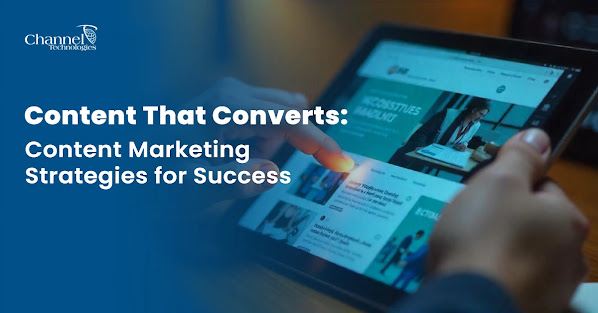Consent-Based Marketing: The Future of Trust-Driven Growth in B2B
In today’s digital landscape, privacy is shaping buyer expectations. Customers no longer want to be tracked silently or targeted without choice. Instead, they expect transparency, control, and personalization that respects their preferences.
This is where consent-based
marketing comes in—not just as compliance, but as a strategic advantage.
By putting first-party data at the center, businesses can build trusted
relationships, deliver personalized experiences, and unlock higher engagement
in competitive B2B markets.
Simply put, consent-based
marketing means engaging only with audiences who have actively said yes—through
newsletter sign-ups, gated content, event registrations, or preference centers.
Unlike
traditional marketing (which relies heavily on third-party cookies or purchased
lists), this approach ensures communications are anticipated, relevant, and
welcomed. As Seth Godin’s famous idea of permission marketing
highlights—your audience should actually want to hear from you.
And in B2B
especially, this matters. You’re not just filling inboxes—you’re building
credibility with people who’ve chosen to listen. That’s not just marketing, that’s
transparent marketing.
Why First-Party Data Is the Game-Changer
With third-party
cookies fading out, first-party and zero-party data are becoming the backbone
of modern marketing. This includes:
- Form fills,
webinar signups, event RSVPs
- Directly
shared preferences
like topics of interest or frequency of updates
The benefits?
- Higher
accuracy
→ Better personalization, less wasted spend
- Compliance
and trust
→ GDPR, CCPA, DPDP aligned
- Cost-efficiency → More
control, lower reliance on vendors
In fact, a
Google–BCG study shows companies using first-party data can achieve 2.9x
higher revenue uplift and 1.5x cost savings compared to others.
The Benefits of Consent-Based Marketing
Consent-driven
strategies do more than keep you compliant. They:
- Build trust:
Customers feel respected when they’re in control
- Improve performance:
Opted-in data = sharper personalization
- Drive loyalty:
Engaged customers become long-term advocates
It’s not just
about fewer unsubscribes—it’s about creating a loyal community that fuels
sustainable growth.
The Role of Consent Management Platforms
(CMPs)
To scale
consent-based marketing, businesses often rely on a Consent Management
Platform (CMP). Tools like OneTrust, CookieScript, and Usercentrics help:
- Manage
opt-ins across channels
- Provide
preference dashboards
- Ensure
compliance globally
- Optimize
opt-in rates through A/B testing
Done right, CMPs
don’t just enforce compliance—they improve opt-in rates and create seamless
user experiences.
Traditional vs Consent-Based Marketing
Here’s the
contrast in a nutshell:
|
Dimension |
Traditional Marketing |
Consent-Based Marketing |
|
Data |
Third-party
cookies, purchased lists |
Opt-in,
first/zero-party data |
|
Targeting |
Broad, generic |
Segmented,
preference-based |
|
Engagement |
<15% open
rates |
>25% open
rates |
|
Compliance |
High legal risk |
Privacy-first,
compliant |
|
Brand
Perception |
Interruption,
low trust |
Transparency,
high trust |
Why Transparency Drives Loyalty
Transparency is
the true differentiator. When customers know why you collect data, how
you’ll use it, and that they can change preferences anytime, engagement
rises.
Research shows
that transparent consent flows can lift opt-ins by 22–34% while lowering
unsubscribe risk. For B2B—where buying cycles are long and decisions are
collaborative—that trust can tip the scale.
Measuring the Impact
A strong
consent-based strategy should reflect in your metrics:
- Opt-in rates
of 15–25% monthly
- Email open
rates above 25%
- Unsubscribes
below 2%
- 20%+ lift in
conversion for consented segments
Track results
before and after rolling out CMPs and refine through A/B testing.
Looking Ahead: Consent-Led Growth
Consent isn’t a
roadblock—it’s a growth engine. By embedding permission and transparency
into marketing:
- Operationally, you get
cleaner data, fewer compliance issues, and predictable performance
- Strategically, you build
a brand known for trust, making it easier to scale, partner, and grow
globally
In short, consent-based
marketing future-proofs your business. It’s not about chasing trends—it’s
about building relationships that last.
Final Takeaway
The question
every marketer should ask today is: “Does the user actually want this?”
If the answer is
yes—you’re not just marketing, you’re building trust. That’s where higher
engagement, stronger loyalty, and sustainable revenue growth truly begin.
Want to dive
deeper? Check out the full article here. Read
More
Do you think B2B
marketers are ready to fully embrace consent-first strategies, or will
traditional tactics linger longer than they should?




Comments
Post a Comment